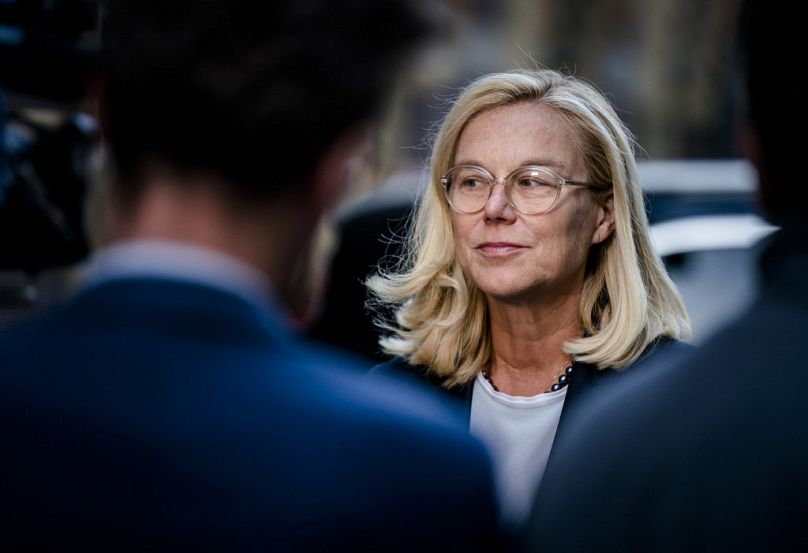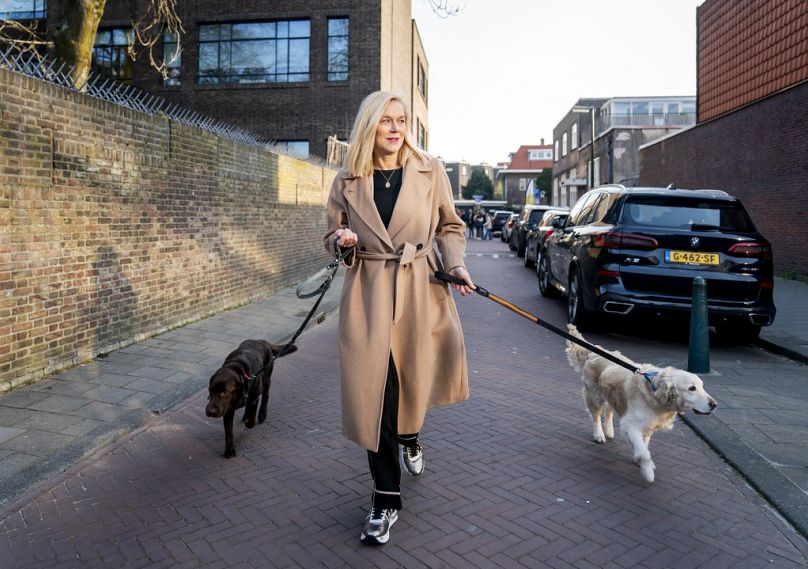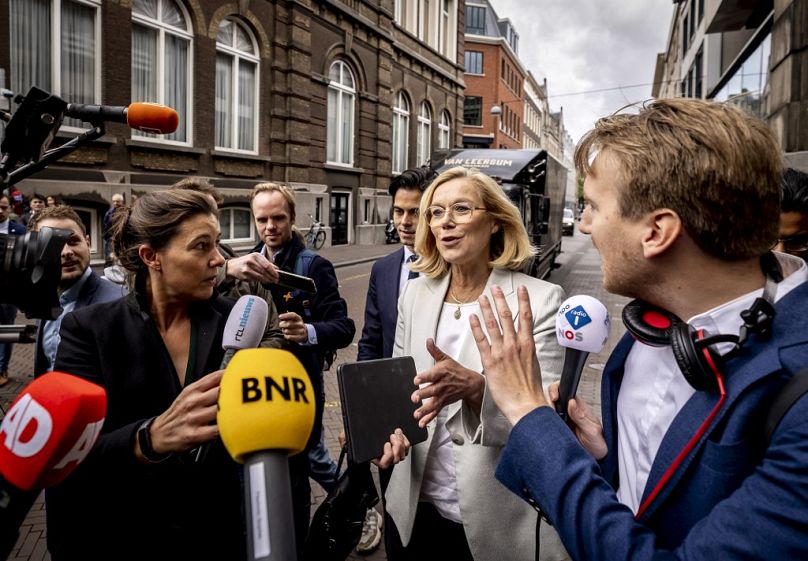One in four Dutch MPs needs protection from threats. After the recent resignations of politicians, is Dutch democracy in danger?
After becoming the first female finance minister in the Netherlands’ history, Sigrid Kaag is leaving politics.
 ADVERTISEMENT
ADVERTISEMENT
 ADVERTISEMENT
ADVERTISEMENT
Over the past 20 months, the country's current deputy prime minister has received many death threats, but the most frightening moment came last January when a man turned up at her home shouting and waving a burning torch.
Her family, including her young children, were in the house while the man live-streamed the incident on social media.
Kaag is not the only politician in the country to have suffered the wrath of voters, particularly on social media, with dozens of MPs facing similar situations.
According to the Dutch investigative programme Zembla, at least 41 MPs - more than a quarter of the 150 members of parliament - live with some form of protection because of the threats they receive.
‘My family - my priority’
Kaag's political emergence in 2017 was promising, and many thought she could become the country's first female prime minister, but has decided to give it all up after months of deliberation.
“It has a huge impact when someone comes to your house with a burning torch, because you don't know what's going to happen, and the safety of your family is obviously of the highest priority,” Kaag told Euronews.
“But this was not the reason why I left Dutch politics. For me it was difficult, but bearable. It was different for my family. I always listen to them and their opinion counts more than anything else in the world,” she added.
The pressure on her family was so great that the finance minister announced she would only stay in office until the country's early parliamentary elections in November.
Kaag will also not be returning to lead the left-liberal D66, the party that helped launch her political career.
“I had worked internationally for three decades at a high level. I often worked in countries in crisis or conflict. When I returned, I did not expect to need the kind of security measures that I needed just to serve my country, a democratic and safe country,” she said.
Although the minister does not specify what kind of protection she receives, the measures applied to other Dutch politicians range from bodyguards to the protection of their personal data and the installation of emergency buzzers in their homes.
“In recent years, the number of threats has indeed increased rapidly. In 2021, the competent police unit received 588 cases, compared with 1125 in 2022,” Linda Bos, professor of Political Communication at the University of Amsterdam, told Euronews.
One of Kaag's party colleagues, Jan Paternotte, told reporters that when a new nanny starts work, "I tell her where the changing table is, where the nappies are, but also where the emergency buzzer is".
The ‘evil elite’
In the case of female politicians in the Netherlands, misogyny plays an important role. They are attacked more for their age and gender than for the content of their policies.
In 2021 Kaag was the MP who received the most hate messages, according to a study by Utrecht University: an average of 22% of incoming messages, more than twice as much as her other female colleagues.
“For me personally, the fact that I'm a woman leading a progressive party has added fuel to the fire, at least for some people,” the minister told Euronews.
“What doesn't help is that social media plays a very negative role in these times. Especially after Covid you see that conspiracy theories are everywhere. It creates a society where tensions are simmering under the surface,” she added.
The consequences of an extremely polarised political climate are being felt as the country tries to contain it.
"Threats are directed at politicians from different parts of the political spectrum, and the number of cases that constitute criminal offences has increased. In addition, many threats come from abroad and via social media, which makes it difficult to prosecute the perpetrator," said the professor of political communication.
Last year, the Dutch intelligence services drew up a report in which they pointed to groups that defend the thesis of the existence of an "evil elite" - the enemy of the people, and around 100,000 people in the country bought into the idea.
They drew a clear profile behind these groups: mostly young men, living in the country and abroad, who develop conspiracy theories on social media.
This polarisation of society has had an impact on parliament.
"There are more parties in parliament than ever (21), from the extreme left to the extreme right, and these extremes basically hate each other,” says Bas Batelaan, Managing Partner of Public Matters - a Dutch public affairs consultancy.
“When I was young, there were often two big parties who formed coalition governments together, and now you need at least four parties to form a coalition,” he added.
Are the threats damaging Dutch democracy?
The ongoing threats and intimidation have been described as a "direct attack on democracy" in the country by a number of Dutch politicians.
“We must be careful. Democracy is vulnerable and we shouldn’t take it for granted, we shouldn't be naive about the potential threats,” said the Finance Minister.
In a recent survey, many politicians admitted that they no longer posted certain opinions on social media and would think twice before appealing to far-right politicians in parliament for fear of the consequences.
"I am afraid that politicians will be less likely to speak out in specific cases for fear of retaliation. This is also likely to have an impact on the ambitions of aspiring politicians," says Bos.
Batelaan agrees with the political communication professor: "People are afraid to speak, they think twice before they do it because they see all the risks. It is an increasingly toxic environment”.













